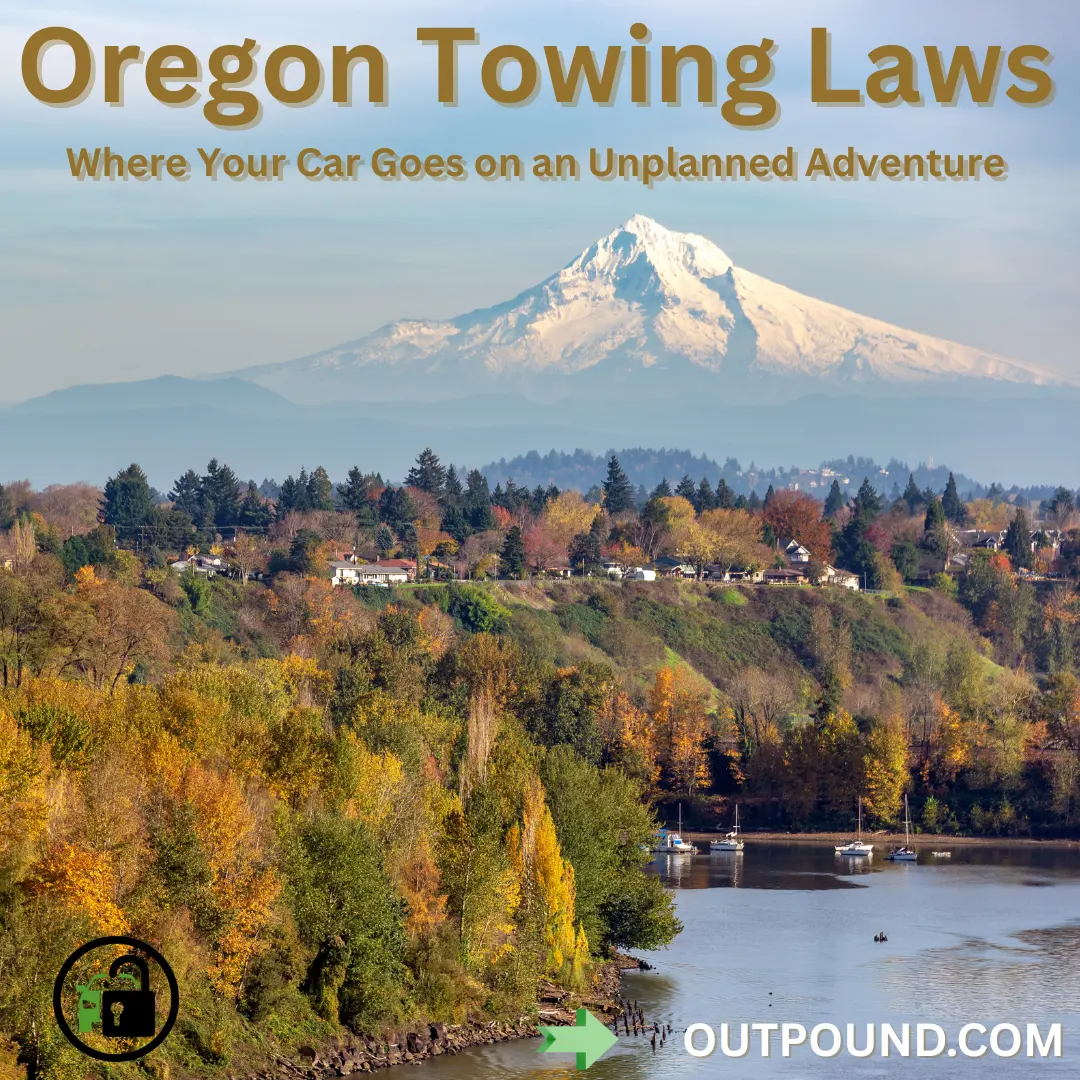Where Your Car Goes on an Unplanned Adventure

Oregon: home to craft coffee, lush forests, and tow trucks that seem to appear wherever you least expect them. From Portland’s busy streets to the quieter corners of Eugene and Salem, parking in Oregon can be a high-stakes game. One moment your car is there, the next it’s gone, sitting in an impound lot while fees and frustration pile up like fallen leaves in a Willamette Valley storm.
Who Can Tow?
In Oregon, towing companies must be licensed and insured to operate legally. Authorized tows fall into three main categories:
- Police-authorized – vehicles illegally parked, abandoned, or creating hazards can be towed at law enforcement request.
- Municipal – cities may authorize towing for street cleaning, event management, or city code violations.
- Private property – property owners or managers can request towing when vehicles violate posted rules.
Private property towing is especially common in apartment complexes, retail lots, and college campuses. The law requires signage that informs vehicle owners of potential towing, but in practice, those signs can be tucked behind bushes, painted in tiny letters, or partially obscured by Oregon rain—making them easy to miss until it’s too late.
When Can They Tow?
Oregon allows towing in a variety of situations, including:
- Blocking fire lanes, driveways, or handicapped spaces without proper authorization
- Expired registration or license plates
- Abandoned or inoperable vehicles
- Violating private property parking rules
During snow emergencies, street cleaning, or city events, vehicles left in certain areas can be towed immediately. Even in rural areas, tow companies may haul vehicles significant distances to impound lots, generating extra mileage fees before the owner can even retrieve the car.
Notification Requirements
After towing, the law requires that tow companies notify local law enforcement within a short timeframe. Police log the vehicle, creating a record so owners can locate it. While this system is meant to protect vehicle owners, delays happen frequently. Many Oregonians discover their car has been towed only after a frantic search of impound lots or receiving a notice in the mail days later.
Fees and Storage
Oregon statutes provide guidelines for reasonable fees, but “reasonable” is flexible. Base towing fees generally range $120–$200, with storage costs around $20–$35 per day. Additional charges for mileage, after-hours releases, or administrative handling often appear on the bill unexpectedly. In larger cities like Portland and Eugene, demand and lot scarcity can drive these fees even higher.
Vehicle Recovery
To retrieve your vehicle, Oregon requires:
- A government-issued ID
- Proof of ownership (title or registration)
- Proof of insurance
- Payment for all fees
Cash is usually accepted, and some yards also take cards. Rural impound lots often have limited hours, and incomplete paperwork can add days of storage fees. Even minor mistakes, like mismatched registration or leased vehicles under a corporate name, can delay recovery.
Legal Recourse
Vehicle owners can dispute illegal or excessive tows in municipal court or small claims court. Solid documentation such as photos, tow notices, receipts, and witness statements will greatly improve the chances of success. However, most drivers pay first and argue later, knowing that tow companies rely on the human desire to get the car back without drama.
Keep Your Wheels Out of the Rain—and the Tow Lot
Oregon’s towing system is legal, organized, and extremely efficient at frustrating drivers. Between city rules, private property tows, and creative fee structures, your car can rack up bills faster than a craft coffee tab. The smart move? Use OUTPOUND.com to locate your vehicle, verify charges, and plan your retrieval—before the fees grow taller than a Douglas fir.
Because in Oregon, parking wrong isn’t just a mistake...it’s a full-blown adventure.

